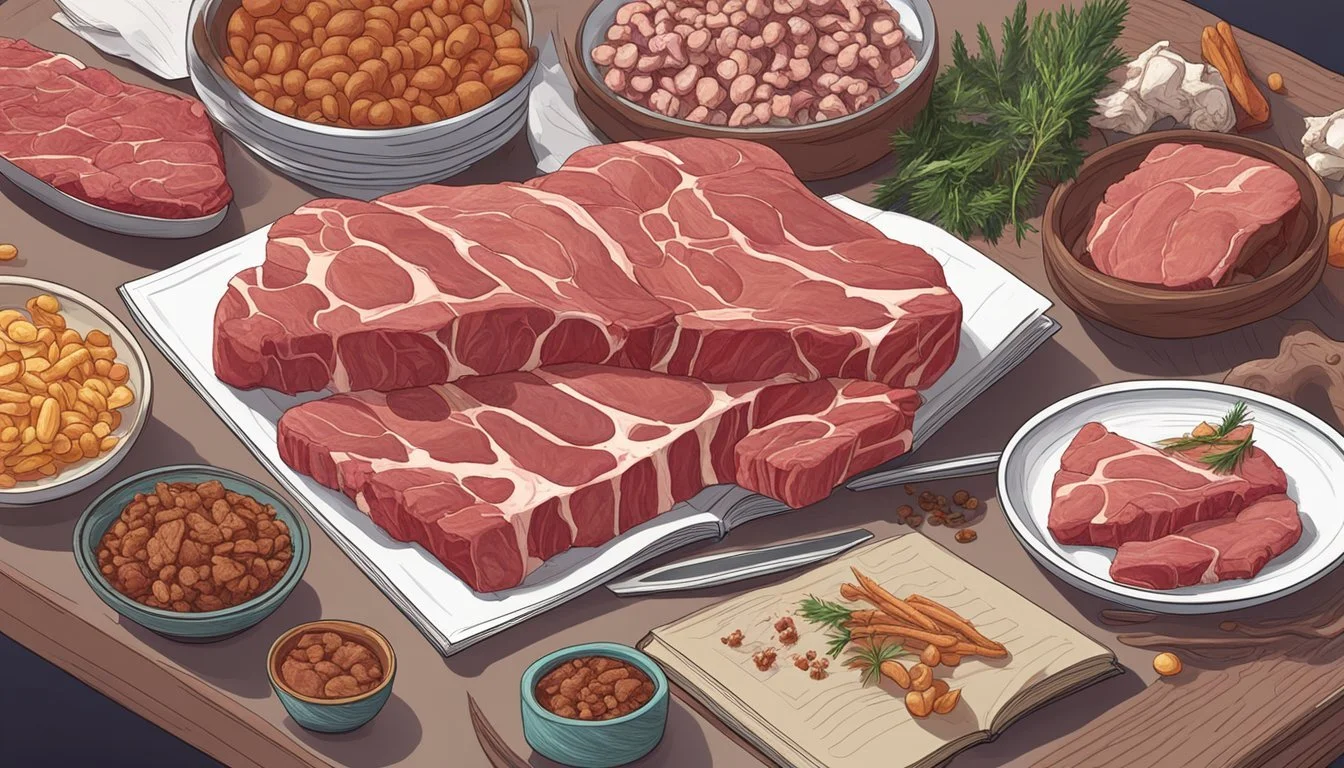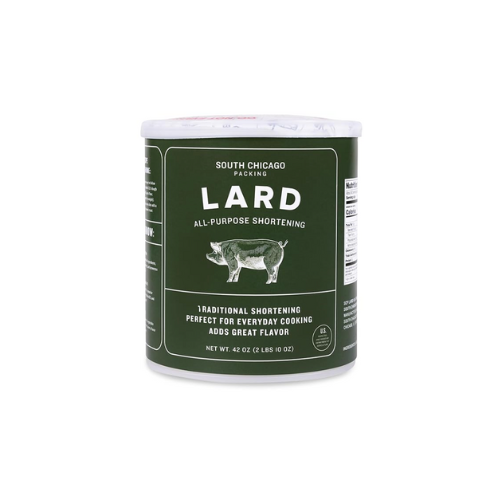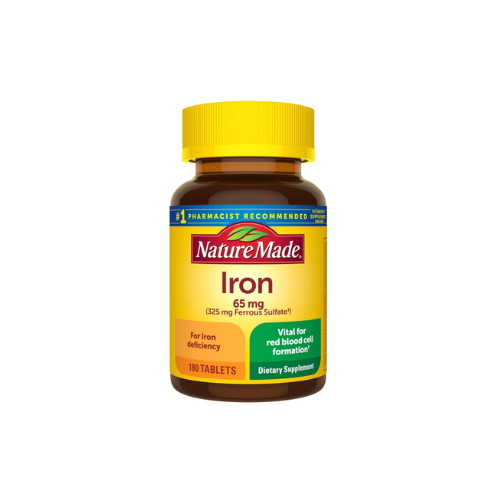Protein Poisoning & Carnivore Diet
Understanding the Risks
Protein poisoning, often referred to as "rabbit starvation," is a rare condition that can occur when one consumes an extremely high-protein diet with inadequate fat and carbohydrate intake. This imbalance can lead to a host of health issues, as it disrupts the body's nitrogen balance and overburdens the liver's capacity to expel excess nitrogen. Symptoms of protein poisoning include nausea, diarrhea, fatigue, and eventually can lead to more severe health consequences if not addressed.
In the context of a carnivore diet, which consists exclusively of animal products and is inherently high in protein, the risk of protein poisoning becomes a point of concern. Adherents of the diet must therefore pay careful attention to their consumption ratios, ensuring they ingest adequate amounts of fat alongside their protein intake. Given that standard cuts of meat often lean towards high protein and lower fat content, individuals following the carnivore diet may find themselves unintentionally skirting the edges of protein poisoning if they are not deliberately including sources of fat.
Healthwise, the need to maintain a proper fat-to-protein ratio is not only crucial to prevent protein poisoning but also to sustain the metabolic requirements of the body. The carnivore diet eschews carbohydrates, thereby making fats the primary source of energy. As such, an understanding of the diet's implications on health and how to properly manage its nutritional makeup is essential for those considering or currently following this dietary path.
Understanding Protein Poisoning
This section delves into protein poisoning, often associated with the carnivore diet, describing its definition, recognizable signs and symptoms, and its occurrence in history.
Definition and Causes
Protein poisoning, also known as "rabbit starvation," occurs when one consumes an extremely high proportion of protein in the absence of sufficient fat intake. It is characterized by an overload of amino acids and a deficit in dietary fats, which leads to an inability for the body to properly metabolize the surplus protein. Common causes include consuming large amounts of lean meats such as rabbit, which are low in fat, and not balancing the diet with other macronutrients.
Causes:
High intake of lean meat
Inadequate fat consumption
Imbalance of amino acids
Signs and Symptoms
Individuals experiencing protein poisoning may exhibit a variety of signs and symptoms. Key indicators include gastrointestinal distress such as nausea and diarrhea. One may also experience fatigue, as well as an inability to consume large portions of meat due to a developing aversion, indicative of the body's struggle to process excessive protein.
Symptoms:
Gastrointestinal distress: Nausea and diarrhea
General discomfort: Fatigue
Historical Context
Protein poisoning has been documented historically among populations relying heavily on lean game. For instance, arctic explorer Vilhjalmur Stefansson studied the Inuit diet, which relied greatly on marine animal meat and highlighted the notion of "mal de caribou" when one ate only rabbit or caribou meat without enough fat. These historical accounts emphasize the importance of a balanced diet with an appropriate amount of fat to prevent adverse health outcomes related to high protein consumption.
Historical Accounts:
Vilhjalmur Stefansson: Observations of the Inuit diet
Mal de caribou: Issues from consuming lean rabbit and caribou meat
The Carnivore Diet Explained
The Carnivore Diet is an all-meat, high-fat dietary regimen that excludes other food groups, positioning itself as a zero-carb alternative to other low-carb diets such as keto and paleo.
Diet Composition
The Carnivore Diet consists primarily of animal proteins and fats. Key components include:
Meat: Beef, pork, chicken, and lamb
Organ Meats: Liver, heart, kidneys
Animal Fat: Tallow, lard
Fish and Seafood: Salmon, sardines
Eggs: Especially favored for their nutrient density
Dairy: Limited to high-fat products like cheese and butter
Notably absent from this diet are carbohydrates, with a complete exclusion of fruits, vegetables, and grains. As such, it contains no dietary fiber and is referred to as a zero-carb diet.
Trust me, the easiest way to buy tallow or lard is through online retailers!
Benefits and Criticisms
Proponents argue that the diet offers numerous health benefits such as weight management, and support for metabolic health. They assert that the high intake of essential nutrients, found abundantly in animal products, contributes to these benefits.
Critics, however, express concerns about the long-term health implications, suggesting potential increases in risk for heart disease due to high saturated fat consumption. They also criticize the lack of variety and potential nutritional deficiencies, particularly in fiber and certain vitamins.
Carnivore Diet Variations
Several variations of the Carnivore Diet exist, with the traditional approach being an all-meat diet, often referred to as a nose-to-tail approach which includes a variety of meats and organ meats to maximize nutrition.
A more restrictive version is the zero-carb carnivore diet, focusing exclusively on animal products without any dairy. Another variation is a high-fat approach, emphasizing foods like fatty cuts of meat and animal fat to maintain a specific fat-to-protein ratio.
While the Carnivore Diet is relatively extreme compared to more moderate approaches such as the keto or paleo diets, it continues to garner attention for its simplicity and the anecdotal health reports from its adherents.
Protein in the Human Diet
Protein is an essential nutrient in the human diet, critical for maintaining and repairing tissues, and supporting metabolic processes. Varying by age and health status, the dietary requirements for protein must balance with calorie intake for optimal health.
Protein Requirements
Adults typically require a minimum of 0.8 grams of protein per kilogram of body weight per day, according to the Recommended Dietary Allowance (RDA). This RDA can increase based on factors such as age, activity level, muscle mass, and overall health status. It is important to note that protein needs should be met through a diet that provides all essential nutrients and sufficient calories to maintain energy levels.
Key considerations for determining protein intake include:
Age: Younger individuals and the elderly might have different protein needs.
Health Status: Those recovering from surgery or illness may require more protein.
Activity Level: Athletes and highly active individuals often need additional protein to support muscle repair and glycogen restoration.
Role of Protein in Metabolism
Protein plays a pivotal role in metabolism, serving as a source of calories and as a building block for growth and repair. Amino acids, the building blocks of proteins, are metabolized to provide both energy and substrates for the synthesis of new proteins.
Metabolic functions of protein include:
Energy Production: Protein can provide 4 calories per gram and is used as an energy source if carbohydrate reserves are depleted.
Synthesis of New Tissues: Amino acids from proteins form the foundation for creating new tissues.
Maintenance of Blood Sugar Levels: Through gluconeogenesis, protein can help maintain blood sugar levels in the absence of sufficient carbohydrates by converting amino acids to glucose.
Enzyme and Hormone Production: Proteins are integral in the creation of enzymes and hormones that regulate metabolic processes.
Protein's utility in metabolism underscores its importance; however, it should be consumed in conjunction with an adequate intake of fats and carbohydrates to prevent protein poisoning or imbalance in nutrient intake.
Balancing Macronutrients
In a carnivore diet, maintaining a sustainable balance of macronutrients is vital. The delicate interplay between protein, fat, and carbohydrates dictates much of the diet's success and the dieter's overall health.
Protein vs. Fat vs. Carbs
A carnivore diet typically emphasizes a low-carb approach, focusing primarily on protein and fat—the two mainstay macronutrients within this dietary regimen. Carbohydrates are naturally minimized due to the exclusion of plant-based foods.
Protein: Essential for muscle growth and repair, it should not be excessively consumed to avoid protein poisoning, also known as "rabbit starvation."
Fat: Serves as a primary energy source on a low-carb diet and helps in the absorption of fat-soluble vitamins.
A commonly recommended guideline for ratios on a ketogenic carnivore diet is:
Fat: 70-80%
Protein: 20-30%
Carbohydrates: Near 0%
Importance of Fat Intake
Fat plays a critical role in the carnivore diet, not just for energy, but also because it aids in the metabolism of fat-soluble vitamins, such as Vitamins A, D, E, and K. Balancing fat intake is crucial to avoiding the pitfalls of a high-protein, low-fat diet, which can lead to protein poisoning. Fat intake should be emphasized, with a balance of different types of animal fats ranging from saturated to monounsaturated and omega-3s.
Saturated fats are found in meats and butter.
Monounsaturated fats are present in foods like egg yolks.
Omega-3 fatty acids are abundant in fish and seafood.
An optimal balance helps individuals adhere to a diet that is both ketogenic and sustainable, steering clear of excessive protein while ensuring adequate caloric and nutritional needs are met.
Health Risks and Management
The carnivore diet's high protein intake poses potential health risks, particularly to kidney function, and can lead to protein poisoning if not managed correctly. Proper understanding and management are critical for individuals following this diet.
Kidney Health and Protein
High dietary protein, especially from animal sources as in the carnivore diet, can strain the kidneys over time. The kidneys are responsible for filtering waste products like urea, which increases with higher protein consumption. Individuals with pre-existing kidney conditions may face elevated risks. Signs of kidney stress include:
Nausea
Fatigue
Swelling (due to fluid retention)
Managing Protein Poisoning
Protein poisoning, also known as rabbit starvation, occurs when there is an excessively high intake of protein with insufficient fat and carbohydrate consumption. Symptoms include:
Constipation
Diarrhea
Headache
To manage protein poisoning, individuals should ensure:
Adequate Fat Intake: Balance out protein with healthy fats.
Hydration: Increased water intake can assist in flushing out excess urea produced due to high protein breakdown.
Monitoring Carbohydrate Intake: While carbohydrates are minimal in a carnivore diet, small amounts may be necessary for certain individuals to prevent protein toxicity.
This dietary approach should be undertaken with caution and possibly under the guidance of a healthcare provider.
Nutritional Considerations
In the context of the carnivore diet, the attention to adequate nutrient intake is critical, particularly in maintaining the balance of vitamins, minerals, and high-quality proteins, to ensure health and satiety.
Vitamins and Minerals
The carnivore diet predominantly features animal products, making it a potent source of several crucial vitamins and minerals. These nutrients are essential for maintaining various bodily functions:
Vitamin B12: An essential vitamin for nervous system health, found abundantly in animal products.
Iron: Critical for oxygen transport in the blood; heme iron from animal sources boasts higher bioavailability.
Zinc: Necessary for immune function and metabolic processes, with high bioavailability in meat, especially red meat.
Organ meats, in particular, are nutrient-dense foods within a carnivore diet, offering a broad spectrum of vitamins and minerals, including those listed above, which may support overall health when consumed in moderation.
Get the best value for your money by purchasing vitamin B12, iron, and zinc online!
Amino Acids and Protein Quality
Animal proteins provide all nine essential amino acids, which are the building blocks of proteins necessary for growth, repair, and maintenance of body tissues:
Amino Acids: The full range of essential amino acids is present in animal proteins, ensuring complete protein quality and contributing to muscle growth and repair.
Satiety: High-quality proteins from animal sources contribute to feelings of fullness, which can aid in weight management.
The bioavailability of these amino acids is high in animal products, allowing for efficient use by the body. It is important for individuals on the carnivore diet to include a variety of meat sources, including organ meats, to optimize amino acid and protein intake.
The Role of Fiber and Other Nutrients
In a carnivore diet, which excludes plant-based foods, understanding the role of fiber, and necessary nutrients is crucial in addressing concerns such as digestive health and potential nutritional gaps.
Fiber in Digestive Health
Fiber is a non-digestible carbohydrate that facilitates regular bowel movements and is traditionally obtained from plant-based foods. On a carnivore diet, one avoids dietary fiber, potentially calling into question the efficacy of digestive health. However, some individuals find that high intakes of protein and fat might self-regulate bowel movements, possibly reducing instances of constipation.
Exclusion of Plant-Based Foods
By excluding plant-based foods, individuals on a carnivore diet do not consume dietary fiber or, typically, the vast array of vitamins and antioxidants found in fruits and vegetables. They also avoid substances such as antinutrients, compounds like lectins and phytates that can hinder nutrient absorption. It's necessary for such individuals to ensure a diverse intake of animal products to achieve their health goals and avoid deficiencies, particularly in nutrients that might be predominantly found in plant-based foods.
Cultural and Ethical Aspects
The discussion around the carnivore diet often intersects with cultural practices and ethical considerations, particularly regarding sustainability and the morality of meat consumption.
Traditional Diets and Protein Intake
Traditional diets among populations like the Inuit have historically included a high-protein, animal-based diet. Explorers like Vilhjalmur Stefansson observed that the Inuit thrived on a diet primarily composed of meat and fish, which provided a precedent for the feasibility of a high-protein diet in maintaining health. However, it's important to note that these traditional diets were balanced with the consumption of organ meats and marine animals, which provided a variety of nutrients not found in muscle meats alone.
Modern Interpretation of Carnivore Diet
In contrast, the modern interpretation of the carnivore diet often focuses on consuming only muscle meats, which can vary in nutrient composition compared to traditional diets. The carnivore diet typically excludes plant-derived foods entirely, which raises ethical concerns about animal welfare and the sustainability of meat production practices.
The paleo diet, often compared to carnivore, includes plant foods and reflects an attempt at a pre-agricultural diet.
Keto, another low-carb diet, allows for more variety, including certain plant foods, which can affect sustainability and ethics differently than strictly carnivorous approaches.
The Standard American Diet is frequently critiqued for its environmental impact; similarly, the carnivore diet is scrutinized due to its potential to exacerbate these concerns if adopted broadly without consideration for sustainable practices.
Conclusion
Individuals adhering to a carnivore diet primarily consume animal products, chiefly prioritizing protein intake. However, concern arises with protein poisoning, also known as "rabbit starvation," when one ingests protein excessively without sufficient fat. This imbalance may lead to health implications, such as nausea, diarrhea, and eventually, potentially fatal outcomes if unaddressed.
Nutritional Balance:
Adequate fat consumption is crucial to avoid protein toxicity.
A strategic approach to selecting meat cuts—favoring those with higher fat content—can assist in maintaining this balance.
Health Implications:
Excessive protein, with inadequate fat, may lead to malaise and detrimental metabolic responses.
Long-term effects include kidney strain and nutrient deficiencies due to the omission of other food groups.
Lifestyle Choices:
The carnivore diet, being restrictive, requires meticulous planning to ensure comprehensive nutrient intake.
Subscribing to such a diet should involve consulting healthcare providers to safeguard against nutritional deficits and support overall health.
In short, one must exercise caution and informed decision-making when contemplating a carnivore diet to circumvent the risks associated with disproportionate macronutrient consumption.













